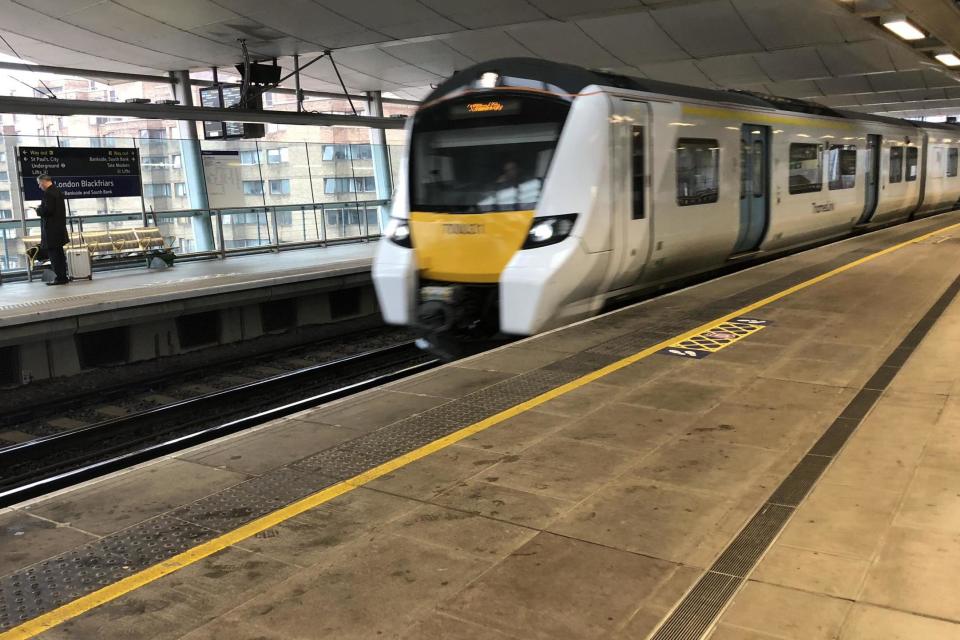Rail passengers face ‘pockets of disruption’ as new timetables come in
Rail travellers are anxiously awaiting the introduction of new train timetables, which take effect across Britain on Sunday morning. The rail industry has warned of possible “pockets of disruption” when new schedules take effect.
Timetables are adjusted twice annually, in May and December. The most recent schedule change, on 20 May this year, was unprecedented in its ambition and calamitous in its execution.
Services on Northern, TransPennine Express and Thameslink unravelled almost immediately – causing one in five of Britain’s rail passengers to suffer “extreme inconvenience and costly, stressful and sometimes dangerous disruption to their daily lives”, according to the Transport Select Committee.
In the wake of the summer fiasco, the 9 December timetable change has been heavily watered down. As a result, many rail passengers will not get the improved train services they were promised.
While Thameslink and Northern Rail passengers will get some additional trains, the intention is to increase services only to the originally planned levels for May. Additional enhancements have been postponed.
In the capital, services are still well short of the original intention to run trains on the Thameslink line between St Pancras and Blackfriars every two or three minutes in each direction – which would have effectively provided an extra north-south metro line through central London.
The east-west Elizabeth line was due to start running through central London from Sunday, adding 10 per cent to the capital’s rail capacity. But in August the opening of the line connecting Heathrow and Reading with south Essex and north Kent was deferred for almost a year because of delays in the Crossrail project.
South Western Railway (SWR), which runs services from Britain’s busiest rail station, London Waterloo, said it has been preparing “for a major timetable change in December 2018 to provide customers with access to additional services and extra capacity throughout the day”.
That will now not happen. The train operator said: “Despite SWR’s desire to deliver the increased capacity and extra services as soon as possible to customers, it has been decided at a national level that a period of stability is needed.”
Even so, the Rail Delivery Group (RDG), representing train operators and Network Rail, warns of possible problems after the introduction of new schedules on Sunday.
The RDG’s regional director, Robert Nisbet, said: “There may be some pockets of disruption as people get used to new journeys and train times, so we advise people to check before travelling next week.”
Northern Rail has already announced “a number of planned cancellations to train services that customers will face on parts of our network in the North West”.
Links from Manchester to Buxton, Clitheroe and Wigan, from Liverpool to Wigan and from Preston to Blackpool are affected.
The train operator says the cancellations are unrelated to the introduction of the new timetable.
Passengers on Northern Rail face strikes every Saturday for the rest of the year in a long-running dispute over the role of guards.
The new schedules will be in place for only two weeks before many lines are closed and services curtailed for engineering work over Christmas and New Year.
One train operator is promising “faster journeys, more seats, and more services”: ScotRail. The Dutch-owned operator will accelerate trains between Glasgow and Edinburgh, with a few services taking as little as 42 minutes.
Links from Stirling to Edinburgh and Glasgow will also get faster.
The managing director, Alex Hynes, said: “ScotRail has reached another milestone as we build the best railway Scotland has ever had.
“This is just the first phase of the work we are doing to deliver for our customers over the next year.”
But many inter-city passengers in Scotland will continue to make long journeys on rolling stock designed for shorter commuter trips. Plans to deploy 40-year-old high-speed trains to connect Glasgow and Edinburgh with Aberdeen and Inverness are way behind schedule.
The trains are hand-me-downs from the Great Western Railway and are being refurbished to current standards.
A ScotRail spokesperson said: “The first of our upgraded Inter7City high-speed trains has entered service, and has received very positive feedback from our customers.
“We are working flat out to get more upgraded trains into service as quickly as possible, but our supplier, Wabtec, is behind schedule and has let us down.”
Stirling and Falkirk will get reconnected with London King’s Cross on the East Coast main line.
LNER, the government-run operator on the UK’s flagship railway, suspended the services in August “to improve reliability”.



